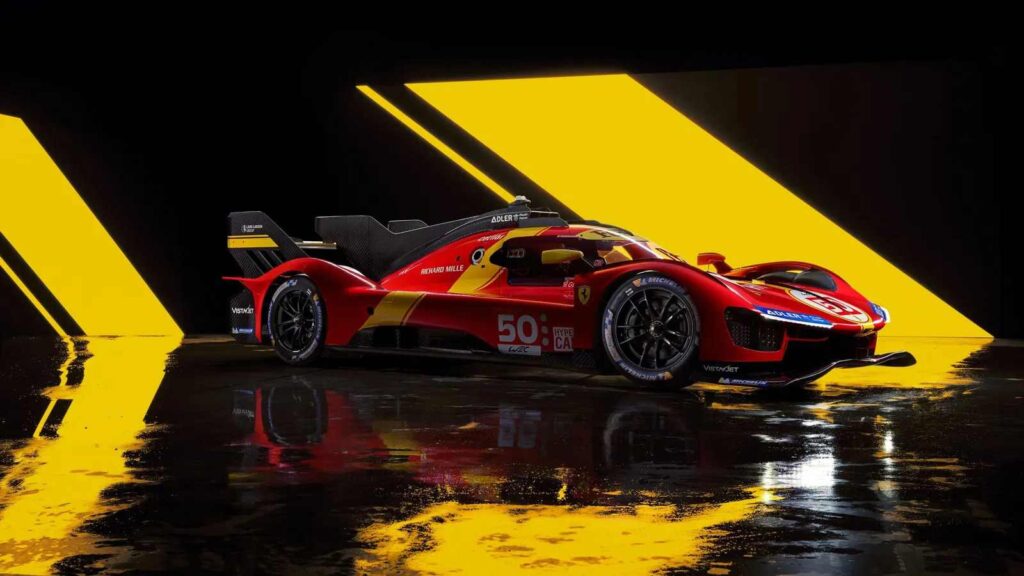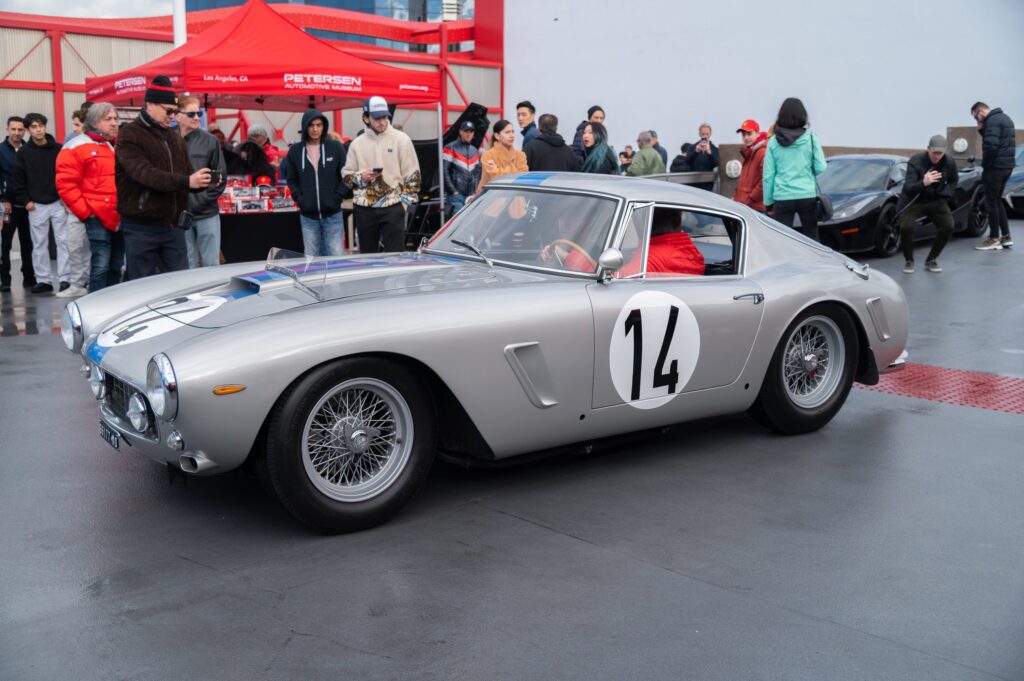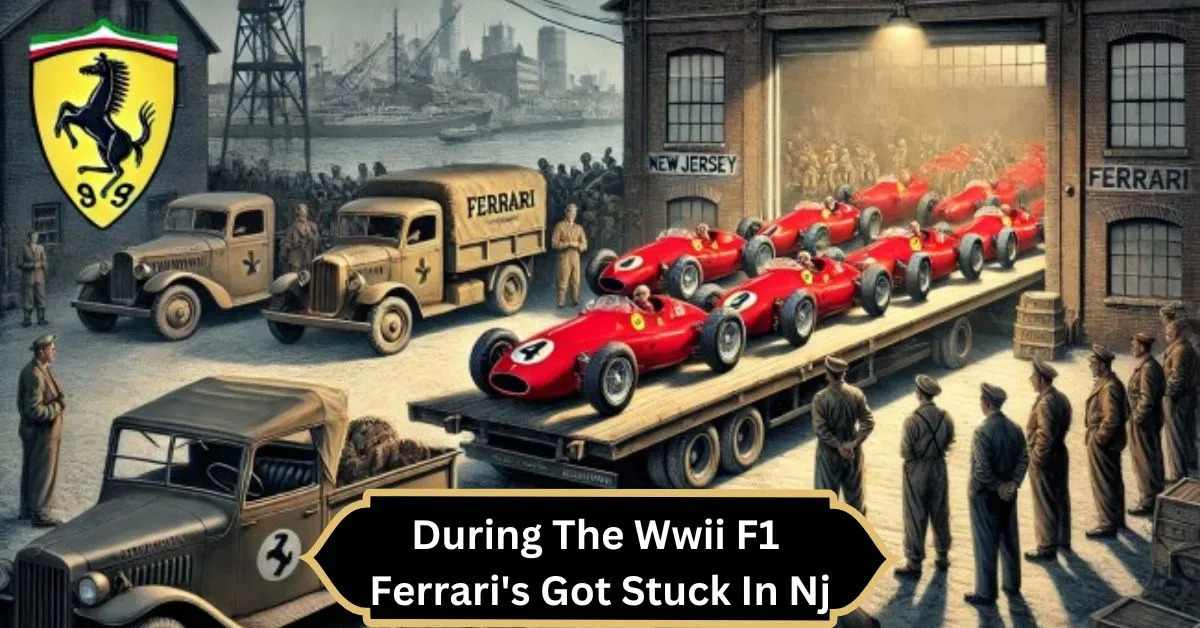During World War II, a fascinating yet lesser-known chapter in automotive history unfolded as several F1 Ferraris found themselves stranded in New Jersey. This unexpected turn of events not only highlighted the logistical challenges of wartime but also left a lasting impact on the iconic Ferrari brand. Let’s explore this intriguing story and its significance.
The Early Days of Ferrari:
Founded by Enzo Ferrari in 1939, Ferrari began as Auto Avio Costruzioni, focusing on producing small parts for vehicles. The brand quickly garnered attention with its innovative designs and high-performance vehicles, setting the stage for its future success in motorsports.
Ferrari’s Involvement in Motorsports:

Ferrari’s passion for motorsports was evident from the outset. By the early 1940s, Ferrari cars were already competing in races and gaining a reputation for speed and reliability. The company’s involvement in motorsports was not only a marketing strategy but also a way to continually push the boundaries of automotive technology.
The Outbreak of WWII:
The outbreak of World War II in 1939 brought significant challenges to Ferrari and the broader automotive industry. The war effort shifted priorities towards military production, disrupting regular manufacturing activities. Enzo Ferrari had to navigate these turbulent times, ensuring the survival of his nascent company.
Ferrari’s Wartime Challenges:
During the war, Ferrari faced numerous challenges, including resource shortages and manufacturing restrictions. The company’s facilities were repurposed to support the war effort, and Enzo Ferrari had to put his dreams of racing dominance on hold. Despite these difficulties, Ferrari continued to innovate and prepare for a post-war resurgence.
The Story of the F1 Ferraris in NJ:
Amidst the chaos of WWII, a fascinating story emerged involving Ferrari’s F1 cars and New Jersey. Several Ferrari cars, intended for motorsport competitions, were shipped to the United States for safekeeping. These vehicles got stuck in New Jersey due to wartime logistics issues and transportation challenges, leading to an unexpected chapter in Ferrari’s history.
Transportation and Logistics During the War:
Wartime logistics were a complex and often chaotic endeavor. The transportation of goods, including luxury sports cars like Ferraris, was fraught with difficulties. Shipping routes were disrupted, ports were heavily monitored, and resources were allocated primarily to military needs. This environment made the movement of non-essential items, such as race cars, extremely challenging.
The Role of the US in WWII:
The United States played a crucial role in WWII, both in terms of military might and industrial production. American factories produced vast amounts of war materials, and the country’s infrastructure became a vital part of the Allied logistics network. New Jersey, with its strategic location and industrial capacity, was a significant player in this effort.
New Jersey’s Strategic Importance:
New Jersey’s ports and transportation networks were essential for the war effort. The state’s proximity to major cities and its industrial capabilities made it a critical hub for military logistics. This importance extended to the safekeeping and transport of valuable assets, including the Ferraris that were stranded there during the war.
Also read: Llaquichan: A Hidden Gem of Natural Beauty and Rich History
Impact on Ferrari’s Operations:
The stranding of Ferraris in New Jersey had a profound impact on the company. While these cars were stuck, Ferrari had to focus on surviving the war and preparing for the future. The experience underscored the importance of resilience and adaptability, traits that would become hallmarks of Ferrari’s post-war success.
The Post-War Era for Ferrari:
After WWII, Ferrari emerged as a leading player in the automotive and motorsports worlds. The company resumed its racing activities, and the lessons learned during the war helped shape its strategies. Ferrari’s post-war success was built on a foundation of innovation, perseverance, and a relentless pursuit of excellence.
Rediscovery of the NJ Ferraris:
In the years following the war, the Ferraris that had been stuck in New Jersey were rediscovered. These vehicles became valuable historical artifacts, representing a unique chapter in the company’s history. Their story is a testament to the enduring allure of Ferrari and its ability to overcome adversity.
The Legacy of WWII on Ferrari:
The experiences of WWII left a lasting legacy on Ferrari. The challenges faced during the war honed the company’s ability to innovate under pressure and adapt to changing circumstances. This legacy is evident in Ferrari’s continued success in motorsports and its reputation for producing some of the world’s most desirable cars.
Notable Ferraris of the WWII Era:
Despite the turmoil of the war, several notable Ferraris were produced during this period. These cars, although few in number, showcased Ferrari’s commitment to excellence and innovation. They are now prized collectors’ items, celebrated for their historical significance and engineering prowess.
The Evolution of Ferrari Post-WWII:

Post-WWII, Ferrari evolved into a global symbol of luxury and performance. The company’s dedication to racing and continuous improvement propelled it to the forefront of the automotive industry. Ferrari’s post-war evolution is a story of resilience, ingenuity, and an unwavering commitment to pushing the boundaries of what is possible.
Ferrari’s Continued Success in F1:
Ferrari’s success in Formula 1 racing is a testament to the company’s enduring legacy. With numerous championships and a reputation for producing some of the fastest cars on the track, Ferrari remains a dominant force in motorsports. The experiences and challenges of the WWII era undoubtedly contributed to this continued success
Lessons Learned from the Wartime Experience:
The wartime experience taught Ferrari valuable lessons about resilience, adaptability, and the importance of innovation. These lessons have shaped the company’s approach to challenges and opportunities, ensuring that Ferrari remains at the cutting edge of automotive technology and performance.
The Cultural Impact of Ferrari:
Ferrari’s impact extends beyond the automotive world. The brand has become a cultural icon, symbolizing speed, luxury, and innovation. Ferrari’s influence can be seen in various aspects of popular culture, from movies and music to fashion and art.
Frequently Asked Questions:
1. Why were Ferrari cars stuck in New Jersey during WWII?
Ferrari cars were stuck in New Jersey due to wartime logistics and transportation challenges that disrupted normal shipping routes.
2. How did WWII impact Ferrari’s operations?
WWII caused resource shortages and manufacturing restrictions, forcing Ferrari to adapt and innovate under challenging circumstances.
3. What is the significance of the Ferraris stuck in NJ?
These Ferraris represent a unique chapter in Ferrari’s history, highlighting the company’s resilience and adaptability during WWII.
4. How did Ferrari evolve after WWII?
Post-WWII, Ferrari focused on innovation and racing, becoming a global leader in luxury and high-performance automobiles.
5. What lessons did Ferrari learn from WWII?
Ferrari learned the importance of resilience, adaptability, and continuous innovation, which have been key to its ongoing success.
Conclusion:
The story of the F1 Ferraris stuck in New Jersey during WWII is a fascinating chapter in the history of an iconic brand. It highlights the challenges and triumphs of Ferrari during a tumultuous period and underscores the company’s enduring legacy. From its early days to its post-war resurgence and continued success in motorsports, Ferrari’s journey is a testament to innovation, resilience, and a relentless pursuit of excellence.
Related Post:



